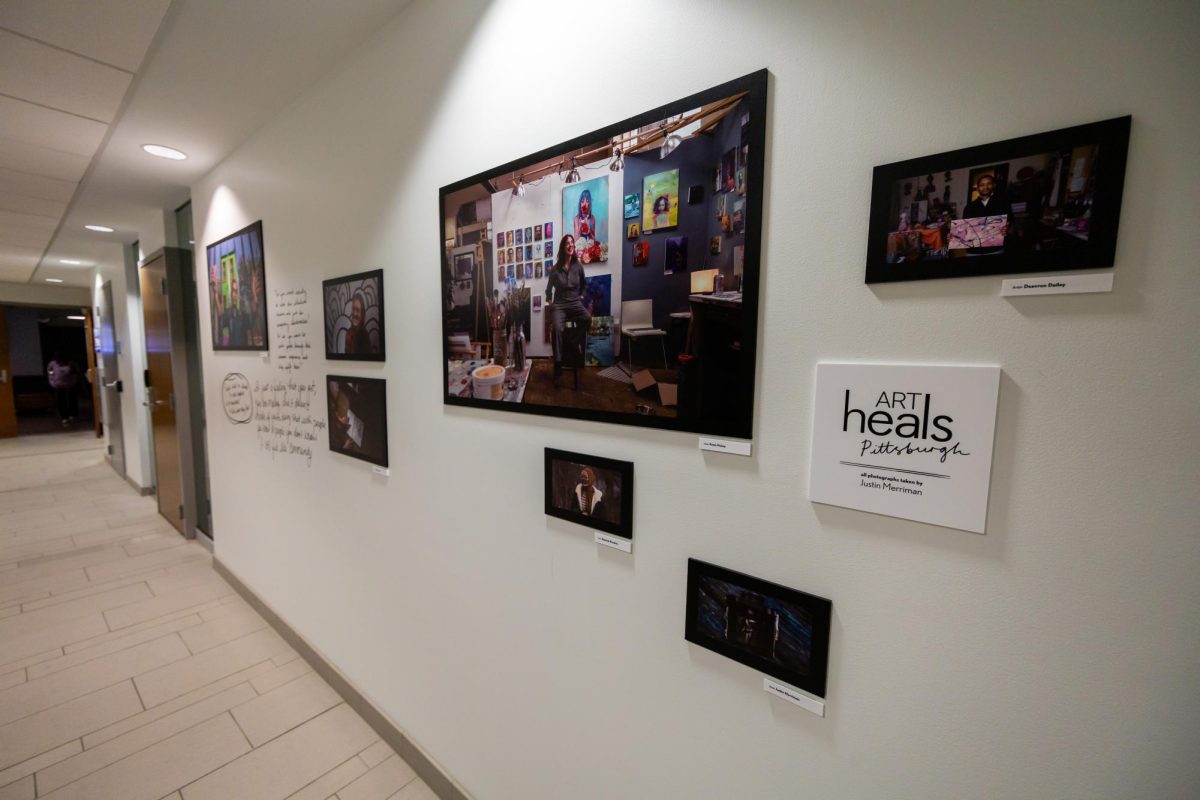Film on Till’s death screened
April 3, 2006
Emmett Till, a black 14-year-old from Chicago, was murdered in rural Mississippi in 1955 for… Emmett Till, a black 14-year-old from Chicago, was murdered in rural Mississippi in 1955 for whistling at a white woman.
On Thursday, the College Democrats – in conjunction with the Hillel Jewish University Center and the Black Action Society – hosted a screening of civil rights activist Keith Beauchamp’s long-awaited documentary, “The Untold Story of Emmett Till.”
The screening of the 70-minute documentary in the Benedum Auditorium drew a crowd of about 120 people, mostly students.
After the screening, Beauchamp held a discussion session with the audience that lasted for roughly an hour.
“This documentary took me 10 years to complete, because it was so difficult to get witnesses to come forth,” Beauchamp said. “Making this documentary has been very important to me. It’s been my baby for a long period of time.”
The documentary supplements the story with many candid interviews with Till’s mother Mamie Till-Mobley (who famously campaigned nationwide for civil rights justice after her son’s murder until her death in 2003), Till’s cousins and various other people who were witnesses to the events surrounding Emmett Till’s murder and the subsequent court case.
While the two men charged with Till’s murder – Roy Bryant and J.W. Milam – were acquitted by a local, all-white jury, the brutality of Emmett’s death and the gruesome image of the dead boy’s mangled face nonetheless helped spur the civil rights movement that would come to prominence in the 1960s.
Indeed, Beauchamp calls the Emmett Till case “the catalyst that started the civil rights movement,” and he hopes his documentary will help keep the civil rights movement alive among younger generations.
“If [Till’s murder] was a catalyst for change in 1955, it can still be one today,” he said.
Beauchamp is also campaigning hard for the “Till Bill,” which is currently making its way through Congress and has already been passed by the Senate.
The Till Bill would reopen many civil rights murder cases that have long been “cold” because of the double-jeopardy law.
“This [bill] is what’s changing laws right now, so we need all the support we can get right now,” Beauchamp said. “[The reopening of the Till case] is the biggest case in our time.”
According to Beauchamp, while Bryant and Milam were the chief figures involved in Till’s murder, there was actually a total of 14 people – five of them black people who were coerced into taking part – involved in the killing. Of these 14 people, five are still alive today and could thus still be indicted for their crimes.
“Fourteen people were involved because they first intended to take all the kids before they saw how big Emmett was,” Beauchamp said.
Beauchamp managed to track down one of the black men he suspected of being an accomplice to Till’s murder, Henry Loggins. Loggins is featured in a short interview clip in Beauchamp’s documentary. In the interview, Loggins completely denies any involvement whatsoever in Till’s death.
“That five-minute clip was just a piece of the two-hour interview I spent with him,” Beauchamp said. “I tried and tried to get him to talk, but he’s too afraid. His son has even asked to get immunity for him, but Loggins just refuses to talk.”
Carolyn Bryant, the wife of Roy Bryant and the woman at whom Till had whistled, refused to appear in the documentary.
Beauchamp said that the FBI is in the process of sending its finding on the case to Joyce Chiles, the district attorney of Mississippi’s Fourth District, which could open up a new set of controversies.
“Here’s the dilemma: Mississippi’s D.A. is the state’s first black D.A. ever, and she has a lot on her shoulders,” Beauchamp said. “Whatever move she makes [regarding the Till case], it will be controversial.”
Beauchamp advised anyone who was interested in giving their support to the Till Bill and to the reopening of the Till case in Mississippi to go to his Web site, www.emmetttillstory.com.
“Just e-mail me, write to me, ask me questions,” Beauchamp said. “I don’t have a big prepared statement for people to sign or anything. I don’t want to appear like some kind of mass lobbyist. I want people to get themselves personally involved.”
During the discussion, one of the main issues raised by students in the audience was the presence of racism in the college setting, and some noted that the audience was visibly split into clusters of white or black people sitting apart from each other.
“There is a [racial] conflict whether we recognize it or not, it’s here on campus in the classrooms,” Pitt junior Maria Kent said.
Student Chris Holland added, “Right before I was coming here, I was surprised to find out that so many people around my age, 21, 22, 23, have no clue who Emmett Till was. It almost made me sick to my stomach when I found out my friend for four years didn’t know who he is.”
Beauchamp said that an important step in dealing with racism is to get stories like the Emmett Till case into public school curricula.
“The film is out there everywhere,” Beauchamp said. “We’re fighting to have it put into the school systems, just like ‘Schindler’s List’ is used in the schools for Holocaust education.”
In closing, Beauchamp urged the audience to become active in civil rights affairs.
“We came a long way over the last 50 years, but we’ve still a long way to go. Things haven’t changed that much.”







